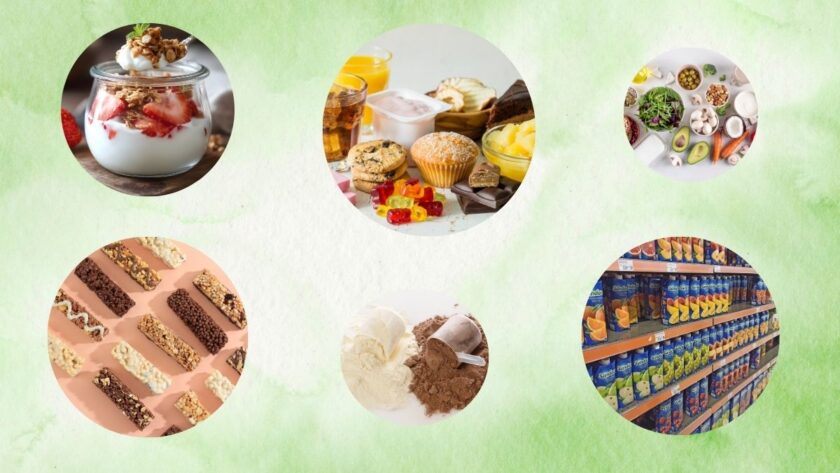A closer look reveals how certain everyday foods can lead to bloating, inflammation, and microbiome imbalance
Gut health plays a crucial role in overall well-being, yet many foods often considered nutritious may quietly disrupt digestion and irritate the gut. Items like granola bars, flavored yogurt, and packaged juices are regularly advertised as clean and wholesome, but hidden sugars, additives, and processed ingredients can feed harmful bacteria, trigger bloating, or disturb the microbiome. Understanding which foods may secretly harm gut health helps people make better dietary decisions and avoid long-term digestive discomfort.
Flavored Yogurt
Flavored or fruit-mixed yogurts may look like a nutritious choice, though they often come loaded with added sugar, artificial flavors, and stabilizers. These additives reduce the probiotic benefits and can disturb the gut’s bacterial balance, causing bloating and inflammation.
Granola and Granola Bars
Marketed as high-fiber snacks, granola and granola bars frequently contain large amounts of sugar, vegetable oils, and preservatives. These additives can increase inflammation and may trigger digestive discomfort despite their healthy image.
Sugar-Free Foods Containing Artificial Sweeteners
Sugar-free foods often rely on artificial sweeteners like sucralose, sorbitol, and aspartame. These sweeteners may alter gut bacteria, increase acidity, and cause gas, bloating, or diarrhea in sensitive individuals.
Plant-Based Meat Alternatives
Packaged vegan or plant-based meats are perceived as clean protein sources, yet they commonly include heavily processed ingredients, gums, fillers, and artificial flavors. These components can irritate the gut lining and make digestion harder.
Protein Bars and Powders
Many protein bars and powders contain sugar alcohols, artificial sweeteners, whey concentrates, and preservatives. These ingredients may lead to gas, bloating, and digestive discomfort, especially for those with sensitive stomachs.
Packaged Fruit Juices
Even when labeled as 100 percent natural, packaged fruit juices contain high amounts of concentrated fructose. This type of sugar is difficult to digest and may ferment in the intestines, causing bloating and feeding harmful bacteria. Whole fruits are a much gentler option for the gut.
Raw Cruciferous Vegetables
Foods like raw broccoli, cabbage, and cauliflower are nutrient-rich but can be tough to digest. Raw cruciferous vegetables often cause gas, bloating, and stomach cramps. Cooking or steaming them makes digestion easier.
Whole Grains With Added Fiber
Packaged high-fiber cereals or breads sometimes include synthetic fibers such as inulin and chicory root. These additives can irritate the gut and lead to bloating or digestive discomfort when eaten in excess.
Spicy Sauces and Hot Condiments
Hot sauces and chili pastes may seem harmless, yet they can irritate the gut lining and increase acidity. People with IBS or gastritis may experience heightened inflammation or digestive distress after consuming spicy condiments.
Flavored Nuts
Plain nuts are healthy, but flavored varieties often contain added sugars, excess salt, artificial coatings, and MSG. These extras can disrupt gut bacteria and cause digestive irritation over time.
Frequently Asked Questions (FAQs)
- Why do some healthy-looking foods harm the gut?
Many foods marketed as healthy contain hidden sugars, synthetic fibers, preservatives, and artificial sweeteners. These ingredients can irritate the gut lining, disrupt microbiome balance, or cause bloating and inflammation.
- Are raw vegetables bad for gut health?
Raw vegetables are not harmful, but some types like broccoli, cabbage, and cauliflower are harder to digest when uncooked. Cooking them helps reduce gas and bloating.
- Is packaged fruit juice a good substitute for whole fruit?
Packaged juices are usually high in concentrated fructose, which ferments in the gut and causes discomfort. Whole fruits contain fiber and are much better for digestion.
- Are protein bars safe for everyday consumption?
Many protein bars contain sugar alcohols, artificial sweeteners, and preservatives. Frequent consumption may cause gas, bloating, and digestive irritation.
- How can I improve my gut health naturally?
Eating whole foods, staying hydrated, adding probiotics, reducing processed items, and including fiber-rich fruits and vegetables support a healthy gut.
